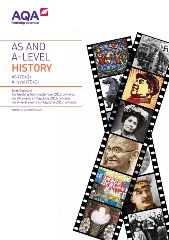1B Spain in the Age of Discovery, 1469–1598 (A-level only)
This option allows students to study in breadth issues of change, continuity, cause and consequence in this period through the following key questions:
- What were the political issues and how well did rulers handle them?
- Where did opposition come from and how was it dealt with?
- How and to what extent did the economy and society develop and change?
- How important were religious and other new ideas in Spain's development?
- To what extent did Spain become a ‘Great Power’?
- How important was the role of key individuals and groups and how were they affected by developments?
Part one: the establishment of a 'New Monarchy', 1469–1556
The forging of a new state, 1469–1516
- The political, economic, social and religious condition of the Iberian Peninsula in 1469
- The restoration of royal authority; royal government; unity and confederation; relations with other European powers
- Social issues and policies: the nobility, the peasantry, urban communities and the Church
- Muslims/Moriscos; the Reconquista; Jews/conversos and anti-Semitism
- Economic stagnation and change: trade and exploration in Europe and North Africa; discovery and first settlements in the New World
- The degree of political unity and social and economic change by 1516
The drive to 'Great Power' status, 1516–1556
- Charles' inheritance; opposition and consolidation; revolts of the Communeros and Germania
- The workings of Empire: ideas and image; conciliar government; individuals and domestic policy
- Foreign relations within Europe; campaigns against the Turks
- Religious policies and the Church in Spain
- The expansion of Empire: the conquistadores; economic and social impact of the New World on Spain
- The political, economic, social and religious condition of Spain in 1556
Part two: Philip II's Spain, 1556–1598
The 'Golden Age', 1556–1598
- Philip II as ruler: character; inheritance; change and continuity in government; administration and policy
- Opposition of individuals and groups: faction and curbing internal rebellions
- Religion and society; the Jesuits, Inquisition and relations with the Papacy
- Economic developments; royal finances, policies and impact of overseas empire
- Social and cultural developments of the ‘Golden Age’; impact of new ideas and intellectual movements
- The condition of Spain in 1598: political, economic and social strengths and weaknesses
Spain: The 'Great Power', 1556–1598
- Philip’s inheritance and ambitions; ideas and pressures; the Spanish army and navy
- The eclipsing of French power: Italy; war and interference in France
- Control of the Mediterranean: challenging the Turks; the conquest of and relationship with Portugal
- Revolt in the Netherlands; relations with England: conflict in Europe and the Caribbean
- Spain in the New World: expansion, settlement and trade; the impact of empire
- Spain’s international position by 1598: the extent of Spain's power; illusion or reality
